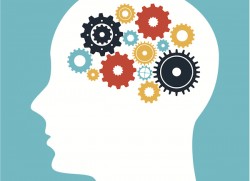Treating Your Cocaine Addiction with Cognitive Behavioral Therapy
Cocaine acts on your brain the way a lot of other drugs do: it interrupts your body’s natural pleasure cycle. Your brain produces a chemical called dopamine and—normally—when your brain encounters something it likes, it releases that dopamine, which sits on some receptors that let the brain feel happy.
Normally, the dopamine would then be recycled. But, cocaine doesn’t allow that and more and more dopamine comes to sit on the receptors. That’s why you feel so happy when you take cocaine. You are getting a huge dose of dopamine.
Removing the cocaine from your system and abstaining from it will help to deal with your brain’s changes in functioning, but it won’t deal with all of the behaviors your addiction developed or the patterns that can lead you back to addiction. That is why proper treatment involves more than detox. You should go on to have therapy and one common therapy mode for dealing with cocaine-addicted individuals is called cognitive behavioral therapy or CBT.
CBT

CBT provides skills training so that cocaine addicts can learn strategies to change their behavior.
CBT acts based on the assumption that the development and continuation of a cocaine addiction is based on learning processes and that these same processes can be used by individuals to reduce and/or end their drug abuse. Therefore, CBT acts as short-term, focused therapy, where you learn to recognize when you are most likely to use cocaine, avoid these situations, and cope with the problematic behaviors that accompany cocaine addiction.
CBT is promising for many reasons. It is a short-term approach that fits into most treatment plans, and it has been thoroughly researched and found in clinical trials to be effective at treating cocaine addicts. CBT is structured and goal-oriented, so results are seen quickly, and this can keep you motivated. It is also flexible and is adapted to you specifically.
If these ideas sound appealing to you and you are interested in seeking out a treatment program that includes CBT or in learning more about other therapeutic approaches, we are here to help. We can connect you with resources and actual treatment centers. Simply call 800-487-1890 (Who Answers?) to get started.
Coping with Cocaine Addiction
The National Institute on Drug Abuse argues if your cocaine use is bad enough that you are seeking out treatment, you are likely using it as your only way to cope with the problems in your life. This can be the case for many reasons.
If you began using in your adolescence, you may never have developed adult coping mechanisms because you were already using cocaine or other drugs to cope. It’s time to learn them.
However, you may have actually developed the skills but not used them in so long that they are now secondary to cocaine as coping methods. If, for example, you use cocaine, you are spending so much of your time getting, using, and recovering from cocaine that you aren’t using other effective interpersonal skills. It’s time to re-learn them.
You may also be dealing with a concurrent disorder, which further weakens your coping skills. As much as cocaine becomes a primary means of dealing with life, having depression or anxiety on top of that actually makes the problem worse.
How Cognitive Behavioral Therapy Works in Addiction Treatment
What Skills Are Taught?
CBT has two components: functional analysis and skills training.
Functional analysis focuses on the act of doing drugs. Every time you use cocaine during CBT the therapist will lead you through a functional analysis, where you pinpoint your thoughts, feelings, and situation before and after using. This can help you to identify a high-risk situation that you need to avoid. It can also help you understand why you use cocaine.
CBT is essentially an individualized training program that aims to help you re-learn behavior. This is done via skills training. The very first skills taught deal with early control of cocaine use. When you have that down, the skills widen their scope and identify other problems that you are having trouble coping with. The skills deal with both interpersonal (between you and another person) and intrapersonal (just you with yourself) skills. Further, these skills have practical application and you can begin using these strategies immediately and can also use them on other situations outside of your cocaine use.
If CBT sounds like something that could work for you, it is time to find a treatment center that offers it and SubstanceAbuse.org can help. Just call us at 800-487-1890 (Who Answers?) today.